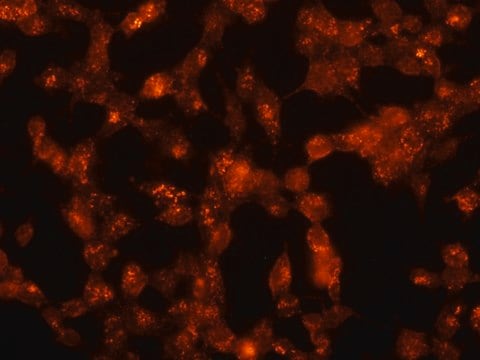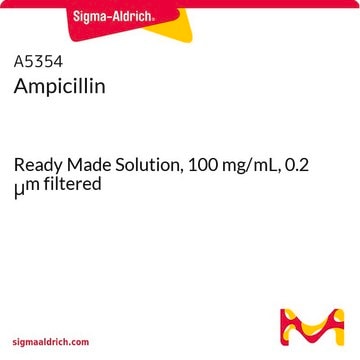ABE1354
Anti-Exo1
from rabbit
Synonym(s):
Exonuclease 1, hExo1, Exonuclease I, hExoI
About This Item
Recommended Products
biological source
rabbit
Quality Level
antibody form
affinity isolated antibody
antibody product type
primary antibodies
clone
polyclonal
species reactivity
human
packaging
antibody small pack of 25 μg
technique(s)
immunoprecipitation (IP): suitable
western blot: suitable
NCBI accession no.
UniProt accession no.
target post-translational modification
unmodified
Gene Information
human ... EXO1(9156)
General description
Specificity
Immunogen
Application
Western Blotting Analysis: A 1:1,000 dilution from a representative lot detected Exo1 in HeLa and siExo1 hela cell lysates (Courtesy of Dr. Zhongsheng You at Washington University in St. Louis).
Epigenetics & Nuclear Function
Quality
Western Blotting Analysis: 2 µg/mL of this antibody detected Exo1 in 293T cells transfected with GFP-Exo1.
Target description
Physical form
Storage and Stability
Other Notes
Disclaimer
Not finding the right product?
Try our Product Selector Tool.
Storage Class Code
12 - Non Combustible Liquids
WGK
WGK 1
Flash Point(F)
Not applicable
Flash Point(C)
Not applicable
Certificates of Analysis (COA)
Search for Certificates of Analysis (COA) by entering the products Lot/Batch Number. Lot and Batch Numbers can be found on a product’s label following the words ‘Lot’ or ‘Batch’.
Already Own This Product?
Find documentation for the products that you have recently purchased in the Document Library.
Our team of scientists has experience in all areas of research including Life Science, Material Science, Chemical Synthesis, Chromatography, Analytical and many others.
Contact Technical Service








